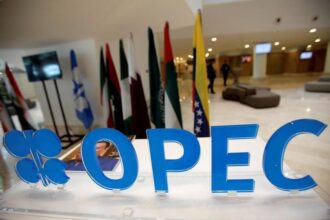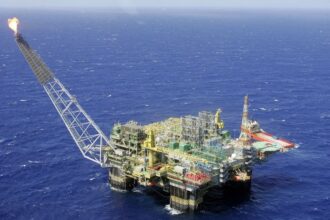By Peter Nurse
Investing.com — Oil prices soared Monday after a group of the world’s largest oil exporters announced a surprise cut to their production levels, attempting to provide support to a market that has fallen this year on concerns of an economic slowdown across the developed world.
By 09:10 ET (13:10 GMT), futures traded 5.5% higher at $79.81 a barrel, while the contract rose 5.6% to $84.34 a barrel, after spiking as much as 8% on the news, their biggest daily rise in nearly a year.
The Organization of Petroleum Exporting Countries and allies including Russia, a group known as OPEC+, confirmed earlier Monday that its members will by a total of 1.16 million barrels a day from May.
The measures could significantly tighten the global supply-demand balance, removing a short-term supply overhang caused by weak U.S. and European demand and a sluggish pick-up in China since the start of the year.
“OPEC+ has very significant pricing power relative to the past,” Goldman Sachs said, in a note. “Today’s surprise cut is consistent with their new doctrine to act pre-emptively because they can without significant losses in market share.”
Goldman raised its Brent oil forecast to $95 a barrel for December this year from $90 earlier, and to $100 for December 2024 from $95.
That said, “while the cut is clearly bullish from a fundamental point of view, the group will also need to be aware of how the cut is perceived,” said analysts at ING, in a note. “The fact that we are seeing a sizeable supply reduction may suggest to some that OPEC+ is worried about the demand outlook in the current economic environment.”
As the U.S. banking turmoil eases and the showed signs of slowing last week, the market may be torn about whether the is set to hike interest rates again in May.
But there’s less debate in Europe, where rose in March, hitting a record high, figures released last week showed.
European Central Bank Vice President Luis de Guindos said on Saturday that underlying price pressures will stay elevated even as slows while repeating the ECB’s stance that “bringing inflation down to our 2% medium-term target will remain data-dependent.”
This likely tightening comes as manufacturing activity across the Eurozone fell further last month, as the final fell to 47.3 in March from February’s 48.5, below the 50 mark separating growth from contraction for a ninth month.
There was similar news across Asia earlier Monday, as and both saw manufacturing activity contract in March while growth in stalled.
Read the full article here










